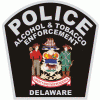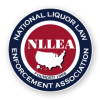NEW CASTLE – The Department of Health and Social Services (DHSS) today launched an updated and significantly improved version of Delaware’s centralized online resource for addiction prevention, intervention, treatment and recovery information, HelpIsHereDE.com. The website is designed to assist people struggling with addiction, their families, the community, and medical providers.
The new version of “Help is Here” is easier to navigate, can be translated into four languages (Spanish, Haitian Creole, French, and Chinese), is more mobile-device friendly, and offers updated information for the community and medical providers. Its expanded video section features new and highly personal testimonials from individuals in long-term recovery, parents who have lost adult children to overdoses, a treatment provider, and a police officer.
Governor John Carney expressed his support for the website and for the role it can play in reducing the toll of addiction.
“Combating the addiction epidemic is a priority of my administration,” Governor Carney said. “Too many people are dying from this disease and too many families are suffering. As we work together to continue to build a system that better recognizes, prevents and treats addiction, Help is Here is a key tool.”
Delaware Lieutenant Governor Bethany Hall-Long, Division of Public Health (DPH) Director Dr. Karyl Rattay, and Division of Substance Abuse and Mental Health (DSAMH) Director Michael Barbieri made the announcement, which included a reveal and demonstration of the updated site.
“Prevention and intervention are key to battling addiction in our state,” said Lt. Gov. Hall-Long. “This is particularly true when it comes to our children. Stress, trauma, early exposure to drugs in the teen years, and early symptoms of a mental disorder can lead to addiction and mental illness. Making parents aware of and connecting them to supportive information through the ‘Help Is Here’ website is vital to preventing years of struggle with substance use.”
Children who learn about the risks of drugs and alcohol from their parents are up to 50 percent less likely to use drugs than those who don’t get the information at home.
Delaware, like much of the country, is experiencing an addiction epidemic. In 2016, 308 people died from overdoses in Delaware, compared to 228 overdose deaths reported in 2015. Up to 80 percent of Delaware’s drug overdoses may involve one or more prescription drugs. According to the US Drug Enforcement Administration (DEA), eight out of 10 new heroin users first abused prescription painkillers.
A key focus of the updated site is providing additional resources for physicians and other medical providers, such as information on the new regulations for the safe prescribing of opiates released this April by the Delaware Department of State’s Division of Professional Regulation (DPR). The regulations establish standards for prescribing opioids safely for pain management. Opioids can be a powerful tool if prescribed and used carefully, but should never be the first line of defense to treat chronic pain.
“Addiction is a chronic disease with a complicated set of causes. Our goal with the revised website is to increase awareness and supportive information across the community,” said DPH Director Dr. Karyl Rattay. “The website is the only one of its kind in the nation, one that seeks to address community needs and also provide guidance and information to medical providers. The refreshed site includes resources for DPR’s new regulations, and a helpful screening tool to aid providers in easily screening patients for substance use disorders as recommended by the Centers for Disease Control and Prevention.”
In addition to sharing information about where to receive treatment, the state is also focused on building additional public treatment services. In February 2016, DSAMH opened new residential treatment beds at four locations in Smyrna, Dover and Delaware City, increasing capacity by 22 percent. These beds are available for both men and women who have received withdrawal management services and are in need of residential treatment to further their recoveries. These changes increased DSAMH’s total number of residential treatment beds from 78 to 95, with all beds having a variable length of stay.
A statewide expansion of residential treatment beds for youth age 18-25 is expected to be online in late summer. This expansion will increase beds from 16 to 32.
DSAMH has 16 beds for individuals suffering from significant co-occurring disorders (mental illness and addiction). And, to support residential recovery services, the state has 120 recovery house beds statewide to aid individuals in their local communities.
“Being in treatment for an addiction can be hard, but recovery is achievable,” said Division of Substance Abuse and Mental Health Director Michael Barbieri. “Recovery is a journey with ups and downs. We want to provide a variety of treatment options to meet a person where they are and provide them with the level of care they need. There is no wrong door to enter to begin the recovery process.”
DHSS Secretary Dr. Kara Odom Walker also expressed her support for the greater outreach to the community through the website and accompanying media campaign.
“Addiction is a brain disease, not a character flaw,” said Secretary Walker, a family physician. “The first step toward recovery is seeking a treatment path that is right for the person in need. This website can help parents understand if a teen-age son or daughter is exhibiting signs of addiction and where to seek help if they are. And for those already in the throes of the disease, Help Is Here offers easy access to information about treatment and recovery services in Delaware and nearby states. The testimonial videos will help those impacted by this disease to understand they are not alone.”
HelpIsHereDE.com was first launched in October 2014.
To be connected to resources immediately, call the DHSS 24/7 Crisis Helpline at:
- New Castle County: 800-652-2929
- Kent and Sussex counties: 800-345-6785.
Help is Here will be updated throughout 2017, including information coming soon on how to prevent, recognize and treat substance exposure in infants, screen pregnant women for addiction and connect them to treatment sources, and significantly expand information for medical providers.
A person who is deaf, hard-of-hearing, deaf-blind or speech-disabled can call the DPH phone number above by using TTY services. Dial 7-1-1 or 800-232-5460 to type your conversation to a relay operator, who reads your conversation to a hearing person at DPH. The relay operator types the hearing person’s spoken words back to the TTY user. To learn more about TTY availability in Delaware, visit http://delawarerelay.com.
Delaware Health and Social Services is committed to improving the quality of the lives of Delaware’s citizens by promoting health and well-being, fostering self-sufficiency, and protecting vulnerable populations. DPH, a division of DHSS, urges Delawareans to make healthier choices with the 5-2-1 Almost None campaign: eat 5 or more fruits and vegetables each day, have no more than 2 hours of recreational screen time each day (includes TV, computer, gaming), get 1 or more hours of physical activity each day, and drink almost no sugary beverages.
 The 2016 National Liquor Law Enforcement Association (NLLEA) Training Symposium, co-hosted by the Delaware Division of Alcohol and Tobacco Enforcement (DATE), will be held from April 18 – 22 in Dover, Delaware. Registration is open to all Delaware and out of state law enforcement agencies.
The 2016 National Liquor Law Enforcement Association (NLLEA) Training Symposium, co-hosted by the Delaware Division of Alcohol and Tobacco Enforcement (DATE), will be held from April 18 – 22 in Dover, Delaware. Registration is open to all Delaware and out of state law enforcement agencies.